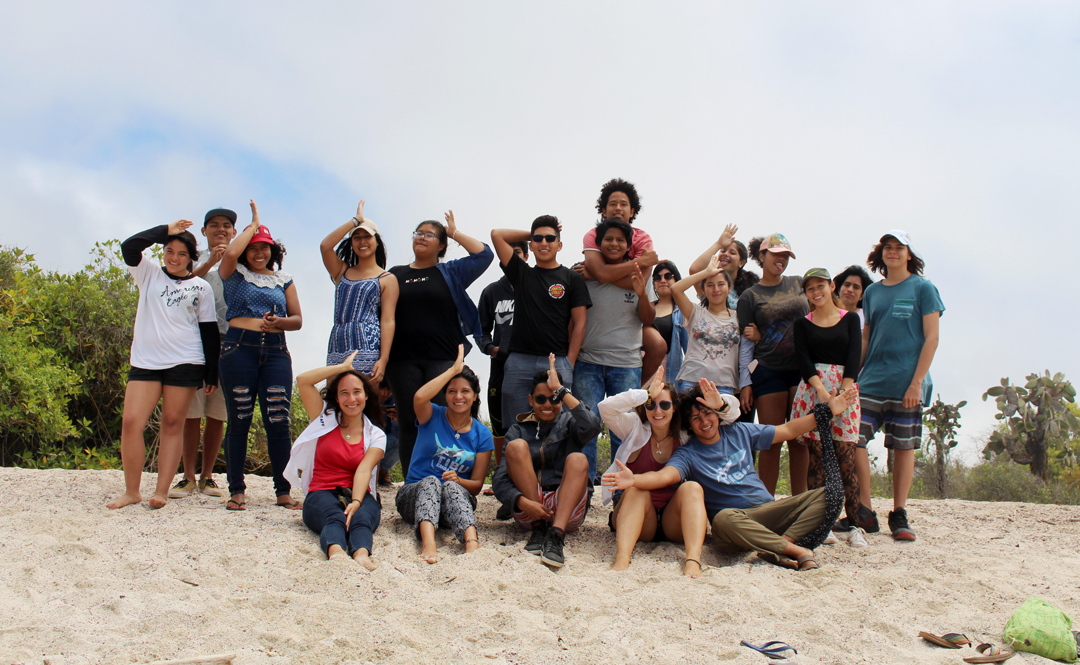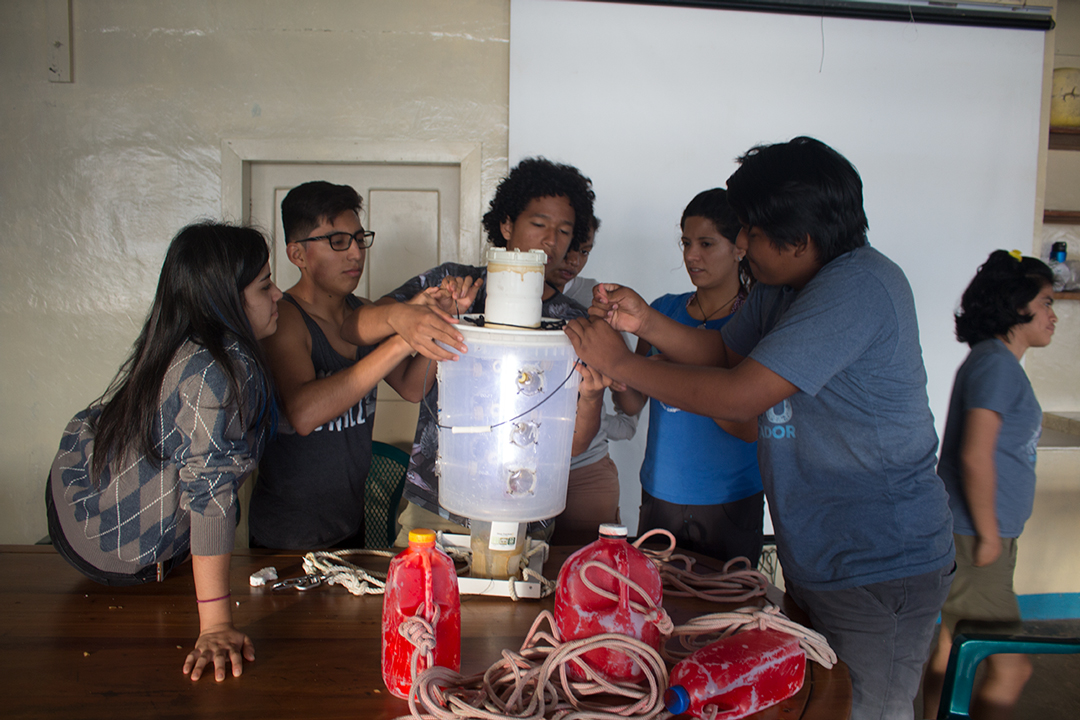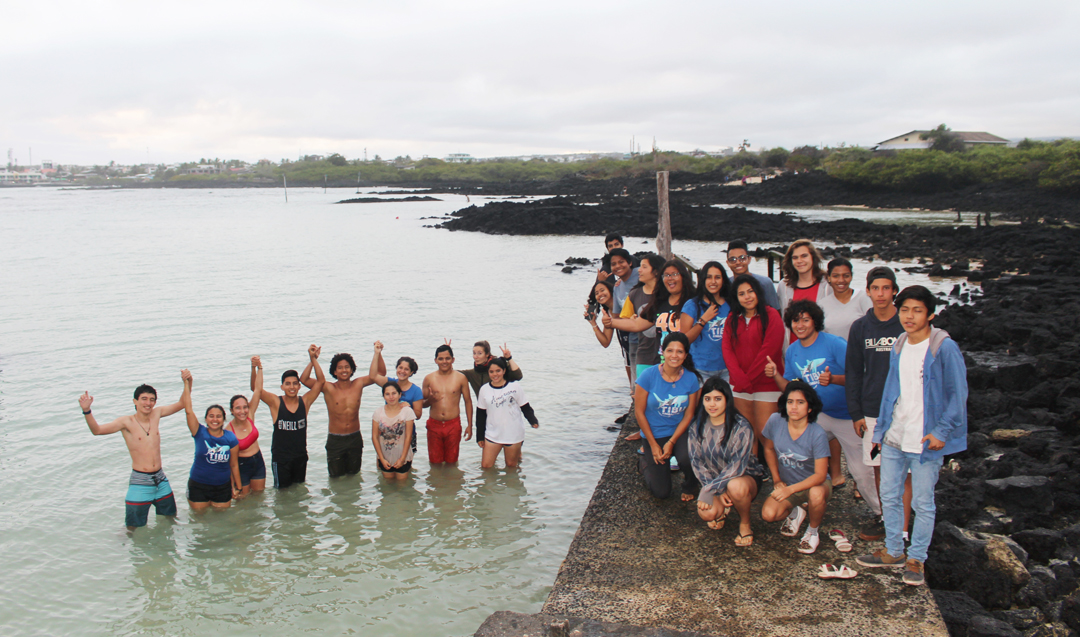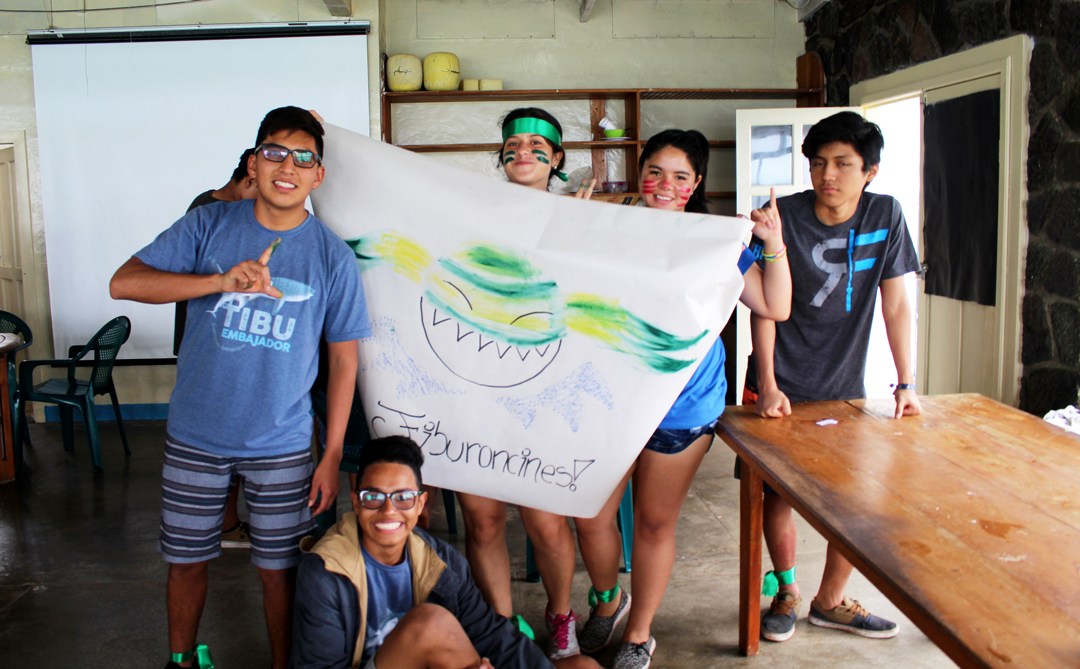Galápagos shark ambassadors in action!

Shark ambassadors at the end of the camp organised by the Charles Darwin Foundation. Photo © Jonathan Atiencia
Motivated students and the ocean around us are a perfect combination when it comes to doing conservation work. When you’re at the beach, have you ever lifted a rock to find out what is under it? Have you touched sand to discover whether there is life in it? Have you ever explored mangroves to see what living creatures are in them? Maybe you have or maybe you haven’t, but the truth is, if we want future agents of change to be aware of the need to care for the oceans, we first need them to gain knowledge and explore marine life. In the Galápagos we are fortunate to be able to observe different ecosystems and ecological processes very easily – and it’s something we shouldn’t take for granted.

On a rocky shore, students look for stories to tell through photographs. Photo © Daniela Vilema
Since May 2017, the Charles Darwin Foundation (CDF) has carried out the Shark Ambassadors Program with 30 local students between the ages of 14 and 16 on Santa Cruz Island. This marine education programme seeks to complement our scientific research training with hands-on experiential learning that increases understanding about the importance of ocean conservation. The programme includes lessons that help students to speak in public or communicate stories through photographs; talks with marine scientists to share their experiences; and field trips where the methodologies that researchers use to study different species are explained.

Students prepare light traps to catch fish larvae at the research station’s beach. Photo © Jonathan Atiencia
Shark ambassadors in action! We recently held a camp that showed us that students learn more through teamwork, fun and exploration – and they enjoy themselves while they’re at it. At our camp the learners cleared microplastics from the beach, conducted intertidal transects, used light traps, explored by night and went in search of hidden treasure, among other fun activities. And what did we see? Sea lions, sharks, moray eels, hermit crabs, jellyfish, fireworms, sponges, sea urchins, different fish species, rays, a juvenile blacktip shark and more.
‘I like this programme because it’s not just theory. There are many practical activities,’
said Andrés, one of our shark ambassadors.
‘Sharks are not the dangerous animals that everybody thinks they are. We need to take care of them.’
Another, Fiorella, added,

Searching for lost treasure was the final challenge of the ‘gymkhana’ during the camp. Photo © Daniela Vilema
Coordinating this programme has taught me a lot. The goal is not to train marine biologists or scientists, but to foster a closer relationship with the sea. Thus, whatever their primary interest, students will understand the importance of taking care of the place where they live and of transmitting this message to their community and to the world. This past year we have worked with wonderful students. Every Saturday they woke up very early to carry out the activities and they always did so with great excitement. But it wasn’t just the students; this has been a jointly organised project with Jonathan (the project’s local volunteer) and volunteers and staff of the CDF who have participated in the activities.
‘The project is very important because we learn to value the marine reserve that protects our islands and, especially, to appreciate the great importance of sharks in our oceans,’ said Jonathan.

Shark ambassadors and CDF’s instructors. Photo © Joe Castillo
Why sharks? These species are so charismatic, yet we know so little about them. They keep the oceans healthy and are very important economically as a resource for diving tourism in the archipelago. However, worldwide more than 100 million sharks die annually from overfishing. The lack of knowledge and the negative public image that films and the media have given to sharks hinder their conservation. Our students have done their own research on different shark issues and their ultimate goal is to teach others what they have learnt. Soon they will present their projects to the local community.

‘Tiburoncines’, the winning team in the ‘gymkhana’ organised to reinforce what the ambassadors learned about sharks. Photo © Daniela Vilema
We cannot protect what we don’t know and we cannot expect others to care about something if we don’t know what we have. Explore, research, motivate and inspire are some of the keys if you also want to become an ambassador! We would like to thank the Save Our Seas Foundation for making this project possible.
